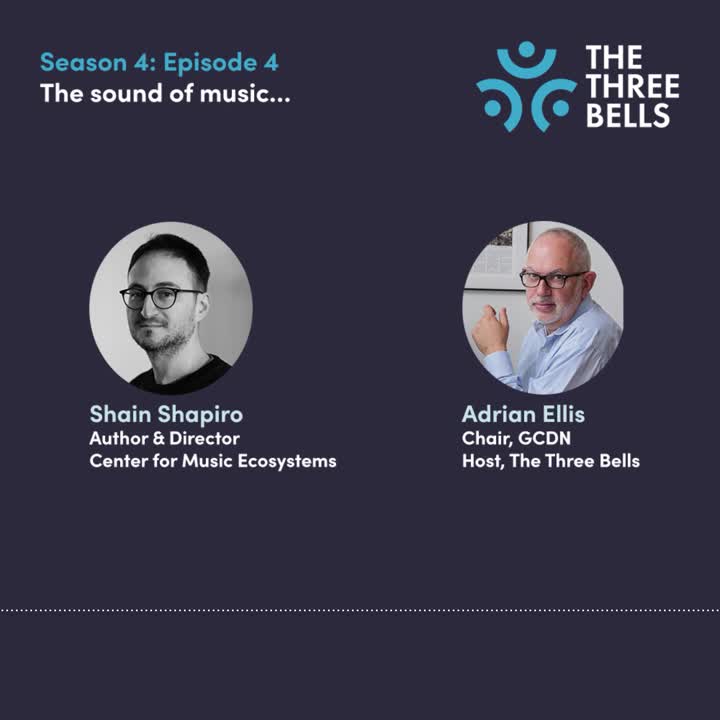Within The Sound Perimeter: The Unifying Force Of Music

Table of Contents
Music as a Universal Language
Transcending Linguistic Barriers
Music's ability to communicate transcends the limitations of spoken or written language. It speaks directly to our emotions and intellect, utilizing rhythm, melody, and harmony to convey complex ideas and feelings universally.
- A fast tempo often signifies joy or excitement, while slow tempos can evoke sadness or contemplation. These basic musical elements create a shared understanding, regardless of linguistic background.
- Consider the global appeal of genres like reggae, which, through its rhythmic pulse and melodic structures, transcends language barriers and resonates with diverse audiences. Similarly, the emotional depth of classical music or the infectious energy of pop music creates a unifying experience across cultures.
- The way a major chord feels "happy" and a minor chord feels "sad" is instinctively understood across cultures, highlighting the inherent emotional vocabulary of music.
Shared Emotional Experiences
Music has the unique ability to evoke profoundly similar emotional responses across vastly different populations. A soaring melody can inspire awe and wonder in listeners from any background; a melancholic tune can trigger feelings of sadness and longing.
- Think of the universal resonance of songs associated with peace, love, and unity. These songs speak to a shared human experience, irrespective of linguistic or cultural differences.
- Numerous studies explore the neurological effects of music, demonstrating its impact on brainwave activity and emotional processing—evidence of the deep connection between music and our innate human experience.
- Music plays a crucial role in collective mourning, religious ceremonies, and celebrations, underscoring its power to foster shared emotional experiences and create a sense of unity.
Music Fostering Cultural Unity
Bridging Cultural Divides
Music has long served as a powerful tool for bridging cultural divides and facilitating cross-cultural dialogue. Through collaboration and exchange, musicians from different backgrounds bring their unique perspectives and traditions together, fostering mutual respect and understanding.
- The rise of world music genres exemplifies this cultural blending, as artists from diverse backgrounds fuse their traditional styles to create something entirely new, reflecting the enriching nature of intercultural exchange.
- International music festivals attract diverse audiences, showcasing the rich tapestry of global musical traditions and promoting cultural exchange through shared experiences.
- Collaborative projects between musicians from different countries, showcasing a fusion of musical styles and instruments, reflect a growing interconnectedness and artistic exchange.
Celebrating Diversity Through Music
Music plays a vital role in preserving and celebrating cultural heritage. Traditional music genres act as powerful repositories of cultural memory, carrying narratives and traditions through generations.
- Preservation efforts dedicated to archiving traditional music from around the world ensures the survival and accessibility of these valuable cultural assets for future generations.
- Music education programs incorporating diverse musical traditions help foster intercultural understanding and respect among young people. Exposure to varied musical styles promotes empathy and appreciation for different cultures.
- The vibrant soundscapes of traditional music, from flamenco to k-pop, demonstrate the enormous diversity within music itself and its capacity to preserve and celebrate cultural heritage.
The Power of Music in Building Community
Collective Musical Experiences
Shared musical experiences, whether at concerts, festivals, or community singalongs, have an unparalleled power to unite people. The collective energy and emotional resonance created in these environments foster a sense of belonging and shared identity.
- Community choirs, orchestras, and bands provide opportunities for people to connect through shared musical endeavors, strengthening social bonds and fostering a sense of community.
- Group music-making offers significant psychological benefits, reducing stress, promoting social cohesion, and fostering a sense of belonging within a group.
- The collective experience of listening to music, whether at a concert, festival, or even just a casual gathering, fosters shared emotion and a sense of communal experience.
Music Therapy and Social Inclusion
Music therapy uses the power of music to promote well-being and social inclusion for marginalized communities. Its therapeutic benefits are widely recognized.
- Music therapy programs are used to support individuals with disabilities, mental health challenges, and other conditions. Music facilitates communication and emotional expression in ways that other therapies cannot.
- Music's ability to foster empathy and understanding makes it an effective tool for promoting social integration and reducing stigma.
- Through music, marginalized communities can express themselves, tell their stories, and build connections with others, strengthening resilience and fostering a sense of belonging.
Conclusion
Within the sound perimeter of music, a remarkable unifying force resonates. This article has explored how music transcends language barriers, fosters cultural unity, and builds strong communities. It functions as a universal language, conveying emotions and ideas across cultures; it acts as a bridge, connecting people from different backgrounds; and it serves as a powerful tool for building social cohesion and promoting well-being.
Explore the diverse soundscapes within the sound perimeter of global music, and experience the unifying force for yourself. Share your favorite unifying musical experiences in the comments below! Discover the power of music by exploring [link to a relevant resource].

Featured Posts
-
 Oh Jun Sung Wins Wtt Star Contender Chennai Match Highlights
May 22, 2025
Oh Jun Sung Wins Wtt Star Contender Chennai Match Highlights
May 22, 2025 -
 Second Reintroduced Colorado Gray Wolf Found Dead In Wyoming
May 22, 2025
Second Reintroduced Colorado Gray Wolf Found Dead In Wyoming
May 22, 2025 -
 Wtt Star Contender Chennai 2025 Sharath Kamals Farewell Match Against Snehit Suravajjula
May 22, 2025
Wtt Star Contender Chennai 2025 Sharath Kamals Farewell Match Against Snehit Suravajjula
May 22, 2025 -
 Understanding Ing Groups 2024 Performance A Look At The Form 20 F
May 22, 2025
Understanding Ing Groups 2024 Performance A Look At The Form 20 F
May 22, 2025 -
 The Goldbergs The Shows Evolution Over The Seasons
May 22, 2025
The Goldbergs The Shows Evolution Over The Seasons
May 22, 2025
